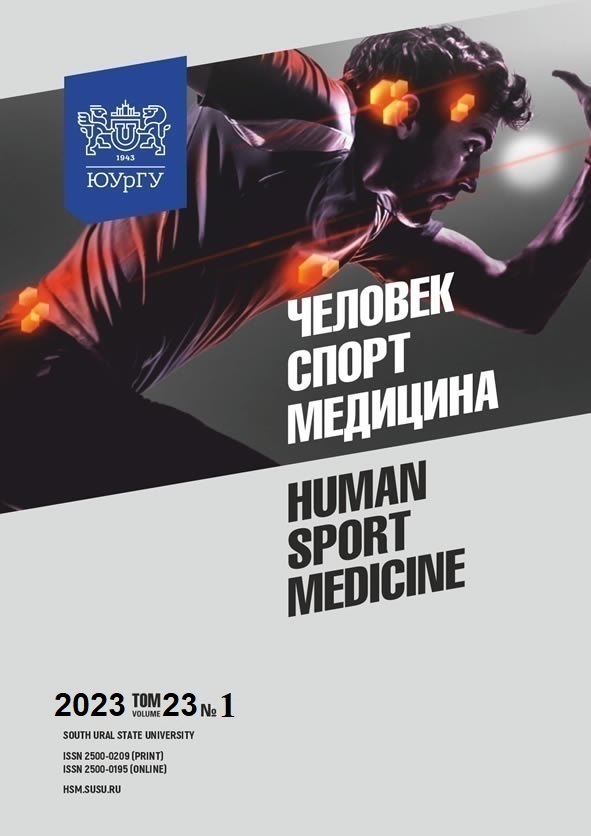EFFECT OF NON-TRADITIONAL MEANS OF PHYSICAL EDUCATION ON PSYCHOPHYSIOLOGICAL ASPECTS OF THE ADAPTATION OF ELEMENTARY SCHOOLCHILDREN TO INCLUSIVE EDUCATION
Abstract
Aim. The paper aims to determine the level of adaptation of schoolchildren to inclusive education and to evaluate the effectiveness of proposed means for the correction of their psychofunctional status in an inclusive environment. Materials and methods. The study involved 25 and 193 children, respectively, with and without disabilities studying in inclusive classes. Their level of adaptation and psychofunctional status were assessed by means of the children’s school questionnaire (B.N. Phillips), empathy measurement (I. Yusupov), and heart rate variability analysis (R. Baevsky). Results. Schoolchildren in inclusive education have a higher level of school anxiety, expressed empathy, a slightly increased stress index, moderate sympathicotonia, orthostasis hyporeaction, tension in regulatory mechanisms, and an unsatisfactory level of adaptation when compared to their peers in regular schools. An adaptive gymnastics program based on non-traditional physical education methods was developed to correct these changes. This exercise program made it possible to decrease school anxiety, increase empathy, and record positive dynamics of the functional status and level of adaptation. Conclusion. The results obtained confirm the need for effective means of physical education in inclusive schools to improve the psychofunctional status of schoolchildren and, thus, provide successful adaptation to inclusive conditions.
References
References on translit















